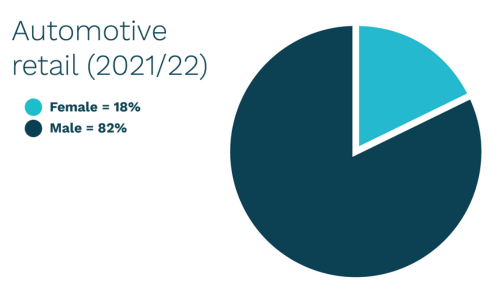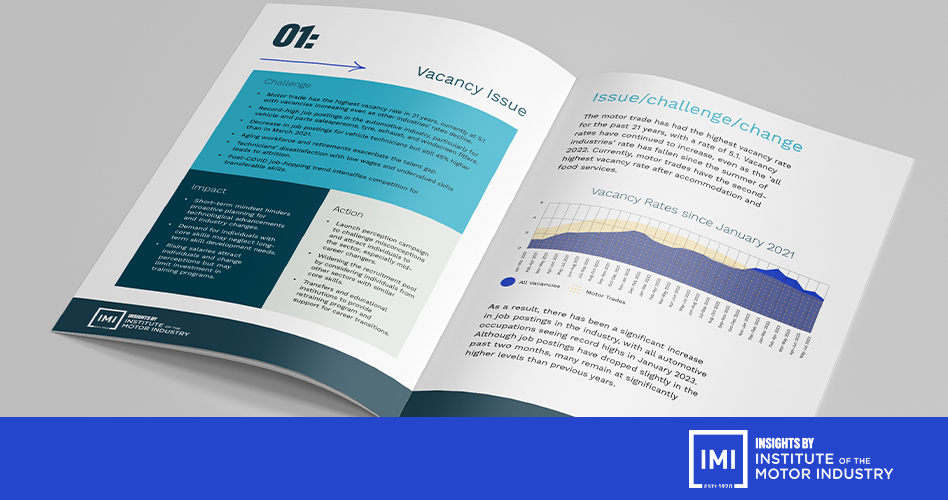The sector needs greater diversity to survive. The image and culture of some organisations has in the past been somewhat toxic.
This summer, I said those exact words to highlight the pressing need for diversity in the automotive sector, emphasising that it's not just a moral imperative but a business necessity. The IMI’s latest report – Future Skills Requirements: Top ten drivers for skills change in UK automotive in the next two years – reaffirms this.
18%
of the workforce are women[1] compared to 47% in the overall working-age population
13%
of those in senior positions are women, showing the pressing need for more gender diversity within higher levels of leadership in the sector
Those who identify as female in automotive retail is at a mere 18% - a stark contrast to the 47% of women in the overall working-age population. 1 This situation is worse in senior positions in which 13% of those who identify as female, compared to 40% of the overall working-age population. Similarly, the report indicates progress but room for improvement in the representation of individuals with visible and non-visible disabilities - despite automotive having a higher percentage of those with disabilities, particularly those who are neuro diverse, when compared to other sectors - and non-white British individuals, especially at senior levels.

Diversity is not merely an ethical imperative; it's a strategic advantage for the automotive sector. It expands the talent pool, improves financial performance, enhances innovation, and fosters better problem-solving and decision-making. The sector's gender diversity gap not only perpetuates outdated stereotypes but also hampers its ability to tap into these strategic advantages.
"Diversity is not merely an ethical imperative; it's a strategic advantage for the automotive sector."
Jim Saker
To bridge this gap, the IMI has launched the "There’s More to Motor" campaign, challenging misconceptions and attracting diverse professionals to the industry. The IMI has also become a partner sponsor of the Automotive 30% Club which aims to fill at least 30% of key leadership positions in the member organisations with diverse women by 2030 through its “30 by 30” strategy.
We’ve also launched an EDI pledge, that by signing commits you to making a positive change, joining a growing community dedicated to improving inclusion and diversity in the automotive sector.
Read the full 'Top ten drivers for skills change in UK automotive in the next two years' report.

Download the report
1 Driving Towards Inclusion: An Analysis of Diversity Metrics in the UK Automotive Sector
